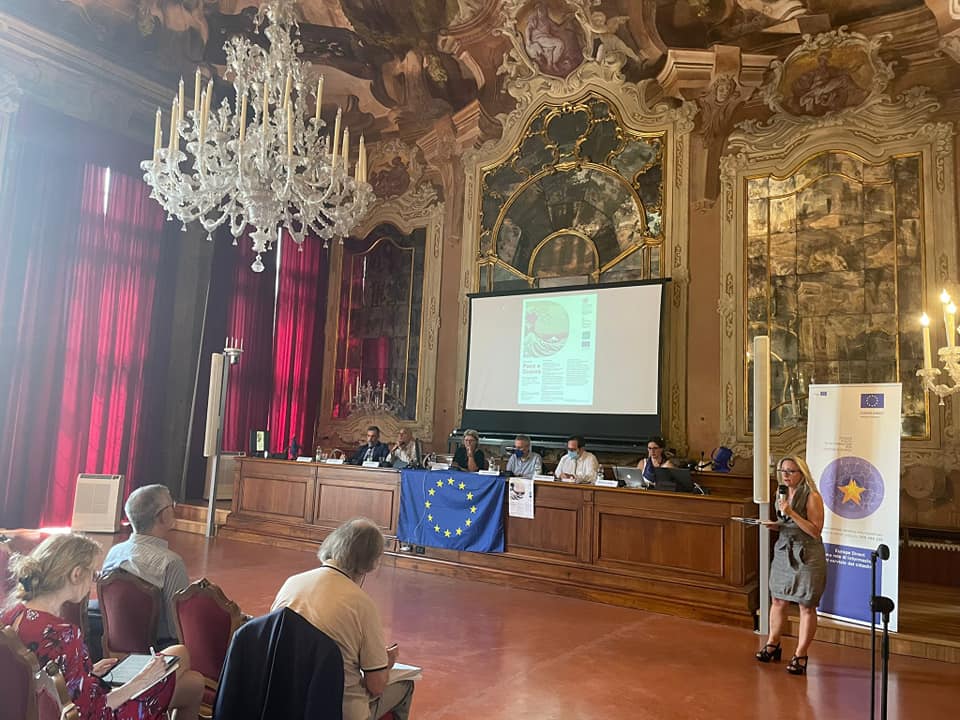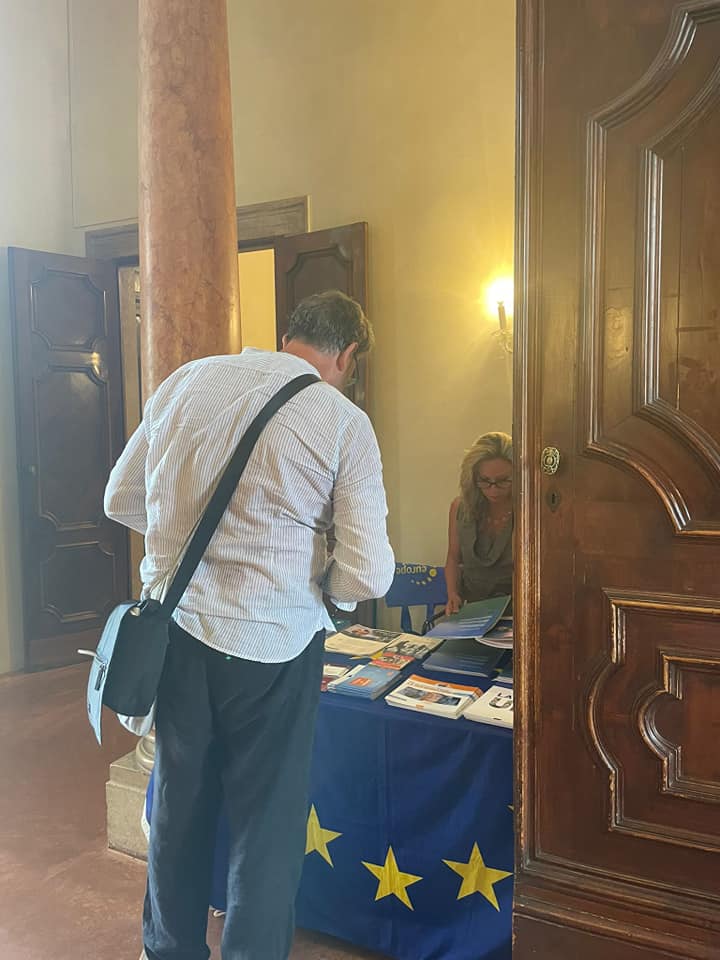27.06.2022 - Seminar "Peace and War"

Institutional Greetings
Speakers:
- Enza Pellecchia, University of Pisa, Coordinator network RuniPace-Miur, Le Università della pace
- Fabrizio Marrella, Ca’ Foscari University of Venice, International Law Framework
- Luisella Pavan Woolfe, Council of Europe, Strasburg's Answer
- Mario Caligiuri, University of Calabria, President of Intelligence's Italian Society, The wars of information. The definitve battlefield: the mind of people.
- Micaela Latini, University of Insubria, The images of war and peace and the war of images.
- Aldo Ferrari, Ca’ Foscari University of Venice,The Ucrainian-Russia crisis and the West of Eurasia.
- Marco Seppi, Law Office Miatto & Seppi, The freezing of the new battling ship with Russian flag and the denied access to Italian ports.
- Maurizio Cermel, Fondation Venice for Reasearch on Peace, per la Ricerca sulla Pace, The Italian constitution and the sending of weapons in Ukraine.
CESTUDIR Speakers:
- Giancarlo Corò Ca’ Foscari University of Venice, Peace e Economy
- Sara De Vido, Ca’ Foscari University of Venice, Gender approach on conflict
- Monica Gazzola, List of Counsels of ICC, The role of the Penal International Court
- Lauso Zagato, Ca’ Foscari University of Venice, Divisive Identity Asset
- Luigi Vero Tarca, Ca’ Foscari University of Venice, Wanting peace, refusing war: two big steps which are very different
- Giuseppe Goisis, Ca’ Foscari University of Venice, A wound in the heart of Europe
- Giorgio Cesarale, Ca’ Foscari University of Venice, Democracy in danger
Introduces Ivana Padoan, Ca' Foscari University of Venice
Wars come and go. The invasion of Ukraine is no exception. But this war is different: hybrid warfare say analysts. In this case, it is a massive offensive carried out via cyberspace, thus multi-carrier, targeting populations, local or international, to influence the course of events. Once the conflict begins, the cyber offensive will continue afterwards. It is no coincidence that continued proposals for truce go unheeded.
In addition to kinetic confrontation, warfare is based on the confrontation of geopolitical visions, of different representations created for the purpose of territorial domination by internal and external political strategists with opposing goals and visions. These representations are so successful that they push populations that previously lived side by side to take up arms and undermine an already fragile economic system.
The Russian attack brings to light evidence of a past that is still present and a future that is highly uncertain and unforeseeable. Alongside issues of identity, recognition of change and power of the countries in struggle, the gravity of multiple issues emerges: the critical issue of economic globalization, infrastructure, communication, the press, our history, the weak word of culture, science and the formation of a European, global citizenship.
Complex, then, are the responsibilities of countries and different structures underway: first and foremost, Europe and the fragility of its role in an international key (Piketty). We need to seriously ask the question about what powers Europe has vis-à-vis international crises. And on diplomacy, what powers does it express? Does it still have political strength or is it overwhelmed by the power of arms or the global economy? And of the diplomacies of individual countries, what can be said? What acts are they activating? How are they moving, in random order or in collaboration? What about the global governance of science diplomacy?
One of its missions now seems to be to try, as far as possible, to defend the principle that science constitutes a pillar of democracy just as democracy constitutes a pillar of science. On this depends the quality of institutions, the level of infrastructure, the level of sophistication of the financial environment, the ecosystem of knowledge production and that of technologies, and, finally, the creativity index.
This is why academic diplomacy actors need to take the time for comprehensive reflection, to debate the means of not stifling research and researcher mobility in order to preserve spaces for strategic collaboration to build the future. Another mandate of science diplomacy is to ensure the defense of academics in danger, in this case Ukrainians and Russians.
A further question the seminar raises is about the national, European, and global legislative structure: what force does law have? what forces, contradictions, resources, constraints, what measures can be trusted in the case of conflicts and emergencies? What possible future should we expect?
And finally, the war in Ukraine may foreshadow other tragedies involving scientifically and economically much more powerful actors on whom we are more dependent.
Some photos from the event:



numero verde 800 496200
infoeuropa@comune.venezia.it
www.comune.venezia.it/europedirect
 Regione Veneto
Regione Veneto

